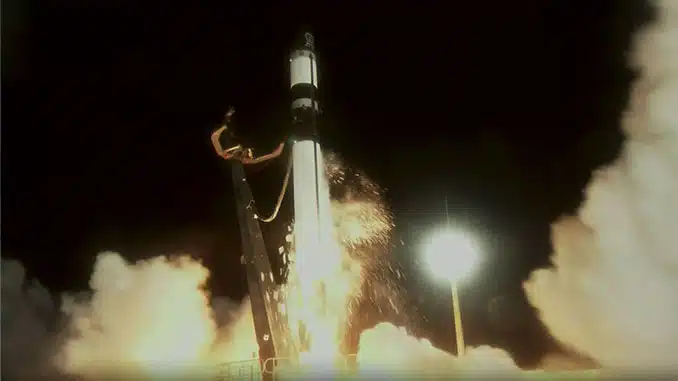On Sunday/Monday, a small satellite embarked on a crucial mission aimed at advancing space debris removal techniques by inspecting a discarded rocket body in orbit. Developed by Japan-based Astroscale, the satellite, named Active Debris Removal by Astroscale-Japan (ADRAS-J), was launched atop a Rocket Lab Electron from the Mahia Peninsula in New Zealand at 3:52 a.m. NZDT (9:52 a.m. EST / 1452 UTC).
The primary objective of ADRAS-J is to approach and monitor the spent upper-stage rocket of an H-2A rocket launched in January 2009. This initiative is part of the Japanese space agency’s (JAXA) Commercial Removal of Debris Demonstration program, with the aim of laying the groundwork for a future mission to deorbit the rocket stage, tentatively scheduled for 2026. While a contract for this subsequent phase of the program is yet to be awarded, ADRAS-J represents a significant step forward in space debris mitigation efforts.
The successful deployment of ADRAS-J, 64 minutes into the flight, marked a milestone for Rocket Lab, with CEO Peter Beck celebrating the mission’s flawless execution on social media. Dubbed “On Closer Inspection,” this mission marked the 44th Electron launch to date and Rocket Lab’s second mission of 2024.
Equipped with visual and infrared cameras, as well as LiDAR sensors, ADRAS-J will initially rely on ground-based observation data to close in on the derelict rocket body. Upon approach, the satellite will switch to onboard sensors to complete the rendezvous, assessing the rocket body’s condition and motion. While ADRAS-J will circle the upper-stage and make a close approach, it will not attempt to physically attach to the rocket.
The H-2A upper stage, currently orbiting at an altitude of 622 x 557 km with an inclination of 98.2 degrees to the equator, presents a formidable challenge due to its three-tonne mass, 11-meter length, and four-meter diameter. Nobu Okada, founder and CEO of Astroscale, emphasized the complexity of the operation, highlighting the significant technological hurdles involved in capturing images of a fast-moving, uncooperative object in space.
Astroscale, established in 2013 with the objective of offering on-orbit servicing and space debris removal services, operates globally with headquarters in Japan and subsidiaries in the United Kingdom, the United States, France, and Israel. Through initiatives like ADRAS-J, Astroscale aims to address the pressing issue of space debris and pave the way for sustainable space exploration.

